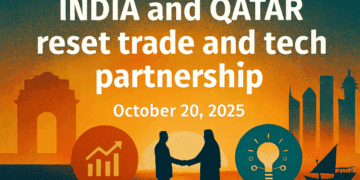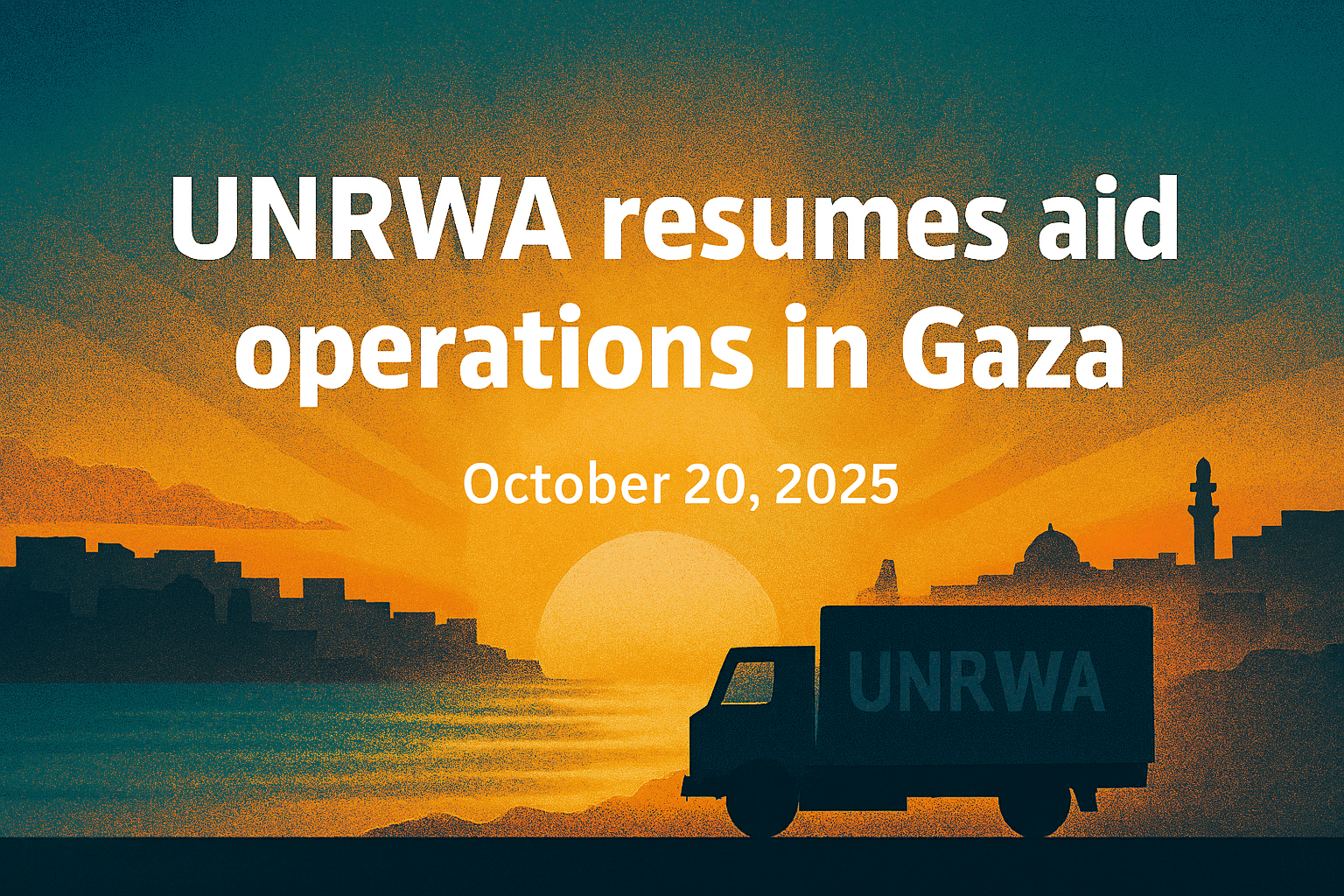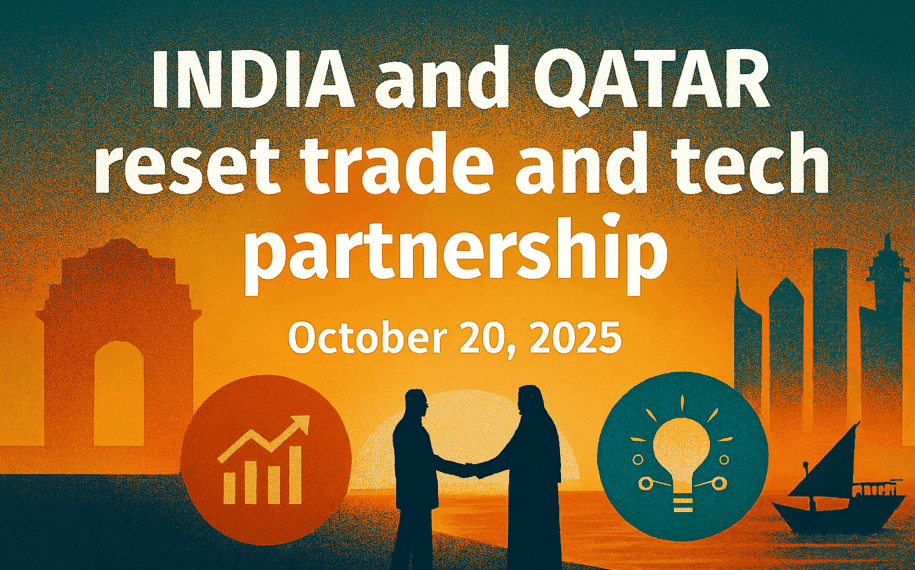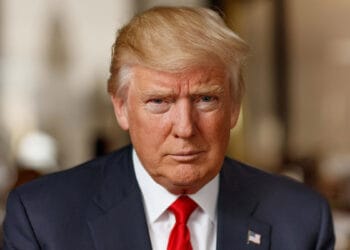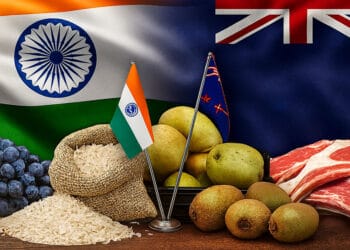A Strategic Pivot in the Gulf
In a world increasingly defined by shifting alliances and economic recalibrations, India and Qatar have taken a bold step toward rebuilding their bilateral relationship. After months of diplomatic chill, both nations have unveiled a comprehensive roadmap aimed at expanding trade, deepening energy cooperation, and launching joint technology ventures. The announcement, made during high-level talks in Doha, signals a new chapter in South Asia–Gulf relations—one that blends pragmatism with ambition.
Background: From Tensions to Talks
The relationship between India and Qatar has seen its share of turbulence. Visa restrictions, trade imbalances, and geopolitical friction had cooled the warmth that once defined their ties. However, behind closed doors, diplomats and trade envoys were working to stitch together a framework that could withstand global volatility. The result is a strategic reset—one that aims to transform transactional exchanges into long-term collaboration.
Trade Expansion: Beyond Commodities
At the heart of the roadmap is a commitment to push bilateral trade beyond $28 billion by 2030. India will increase its imports of liquefied natural gas (LNG), petrochemicals, and aluminum, while Qatar has agreed to lower tariffs on Indian agricultural exports. This includes staples like basmati rice, spices, tea, and processed foods—sectors where India holds a competitive edge.
“This is not just about numbers,” said a senior official from India’s Ministry of Commerce. “It’s about building resilience into our supply chains and ensuring that our farmers and manufacturers have access to stable, high-value markets.”
Energy Security: A Two-Way Street
Energy cooperation is another cornerstone of the partnership. India will gain priority access to Qatar’s LNG terminals, ensuring uninterrupted fuel supply during peak demand seasons. In return, Qatar will invest in India’s port infrastructure and smart grid projects, helping modernize the country’s energy distribution systems.
“Energy diplomacy is no longer optional—it’s essential,” noted Dr. Rakesh Sharma, an energy analyst based in Mumbai. “This deal gives India a buffer against global fuel shocks and positions Qatar as a long-term stakeholder in India’s growth.”
Technology Collaboration: Trading Ideas, Not Just Goods
Perhaps the most forward-looking aspect of the roadmap is the launch of a joint innovation fund worth $500 million. The fund will support cross-border ventures in artificial intelligence, fintech, agritech, and cybersecurity. Startups from both countries will be eligible for grants, mentorship, and market access.
“We’re not just trading goods—we’re trading ideas,” said Priya Nair, a tech entrepreneur whose agritech platform recently expanded into the Gulf. “This partnership gives us the runway to scale and solve real-world problems across borders.”
Human Capital and Skill Exchange
Beyond trade and tech, the roadmap includes provisions for skill exchange programs. Indian professionals in healthcare, education, and engineering will be offered fast-track visas to work in Qatar. In turn, Qatari students will receive scholarships to study in Indian universities specializing in STEM and business.
“This is people-to-people diplomacy,” said Ambassador Khalid Al-Thani. “We want our youth to learn from each other, collaborate, and build a shared future.”
Infrastructure and Logistics
To support the expanded trade flows, both countries will co-develop logistics hubs in Gujarat and Doha. These hubs will feature bonded warehouses, cold storage units, and digital customs clearance systems. The goal is to reduce turnaround times and improve transparency in cross-border shipments.
“Speed and trust are the new currencies of trade,” said logistics expert Arvind Menon. “This roadmap addresses both.”
Industry Reactions: Optimism with Caution
Industry leaders have largely welcomed the roadmap, though some caution that implementation will be key. “We’ve seen big announcements before,” said Anjali Mehta, CEO of an Indian agritech firm. “But this time, the details look promising—especially the tariff relief and tech funding.”
Qatari business chambers have also expressed interest in joint ventures, particularly in food processing, renewable energy, and digital finance.
Diplomatic Implications: A Regional Signal
Analysts believe the India-Qatar reset sends a signal to other Gulf nations. As global power centers shift, countries are looking for reliable partners who can offer both scale and stability. India’s growing economy and Qatar’s strategic location make them natural allies in a multipolar world.
“It’s pragmatic diplomacy,” said former Indian ambassador Rajiv Bhatia. “Trade heals faster than politics, and this roadmap is proof.”
Challenges Ahead
Despite the optimism, challenges remain. Regulatory hurdles, cybersecurity risks, and political sensitivities could slow progress. Both governments will need to maintain open channels of communication and ensure that private sector voices are included in policy decisions.
“Execution is everything,” said policy analyst Fatima Hussain. “The roadmap is solid, but it needs champions on both sides to make it real.”
Conclusion: A Blueprint for Shared Growth
India and Qatar’s renewed partnership is more than a diplomatic gesture—it’s a blueprint for shared growth. By aligning trade, technology, and human capital, both nations are positioning themselves for a future where cooperation trumps competition. As the roadmap unfolds, businesses, startups, and citizens in both countries stand to benefit.
In a world of fractured ties and rising uncertainty, this reset offers a rare glimpse of what pragmatic, forward-looking diplomacy can achieve. It’s not just a handshake—it’s a horizon.
